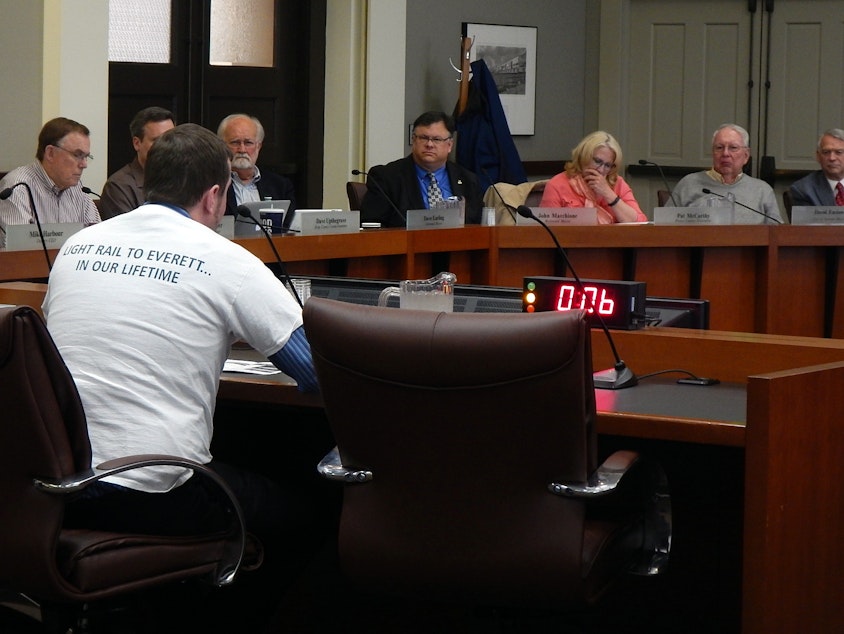Is the rapid transit plan rapid enough? Experts don't think so

Transit riders around the region have told Sound Transit that the agency's proposal to build 58 miles of light rail over the next 25 years is too slow.
It's been a clear theme in the more than 30,000 comments the agency has received as it gears up for the Sound Transit 3 ballot measure this fall.
The agency's expert review panel has also told agency staff to figure out how to expand rapid transit more rapidly.
The proposed ballot measure known as Sound Transit 3 would also expand express buses and commuter rail. But 85 percent of construction dollars would go to light rail. Buses would get 7 percent and commuter rail 5 percent.
In its current form the plan -- still subject to public comment and changes by Sound Transit's board of elected officials before going to the ballot in November -- would double the miles of light rail serving King, Pierce and Snohomish counties.
Sponsored
Under the schedule proposed by Sound Transit, some rail projects wouldn't begin construction for 8 or 9 years; communities like Ballard and Everett wouldn't get light rail for 20 years or more.
"They've assumed relatively conservative schedules," said expert review panel chair Jim Jacobson, the former deputy general manager of King County Metro. "That's one of the things that we've asked their staff to come back to us is what kind of strategies they might use to speed up that process."
Light-rail skeptics say the agency could move more people cheaper and faster if it invested more in bus rapid transit.
Jacobson said the panel's very specific mandate from the state legislature doesn't include second-guessing decisions like what kind of transit to invest in. The panel aims to make sure the agency is following industry best practices in the things it does spend taxpayer money on.
The $50 billion transportation package would cost the typical adult $200 a year, according to Sound Transit, primarily from sales taxes. That sum would come on top of the $170 cost per person for Sound Transit's ongoing construction projects, approved by voters in 2008.

